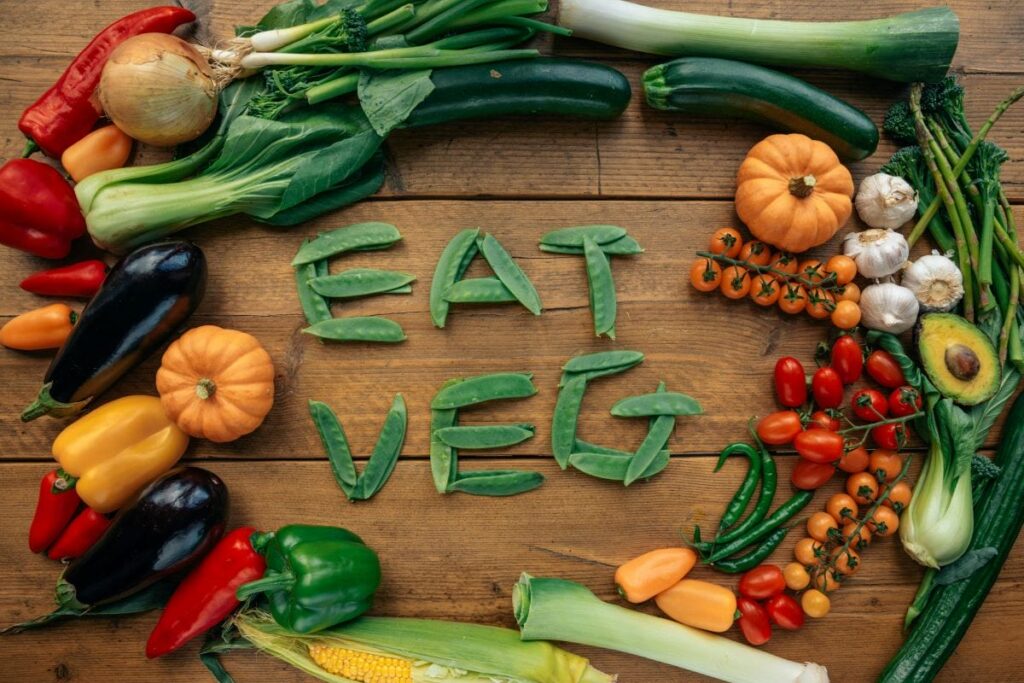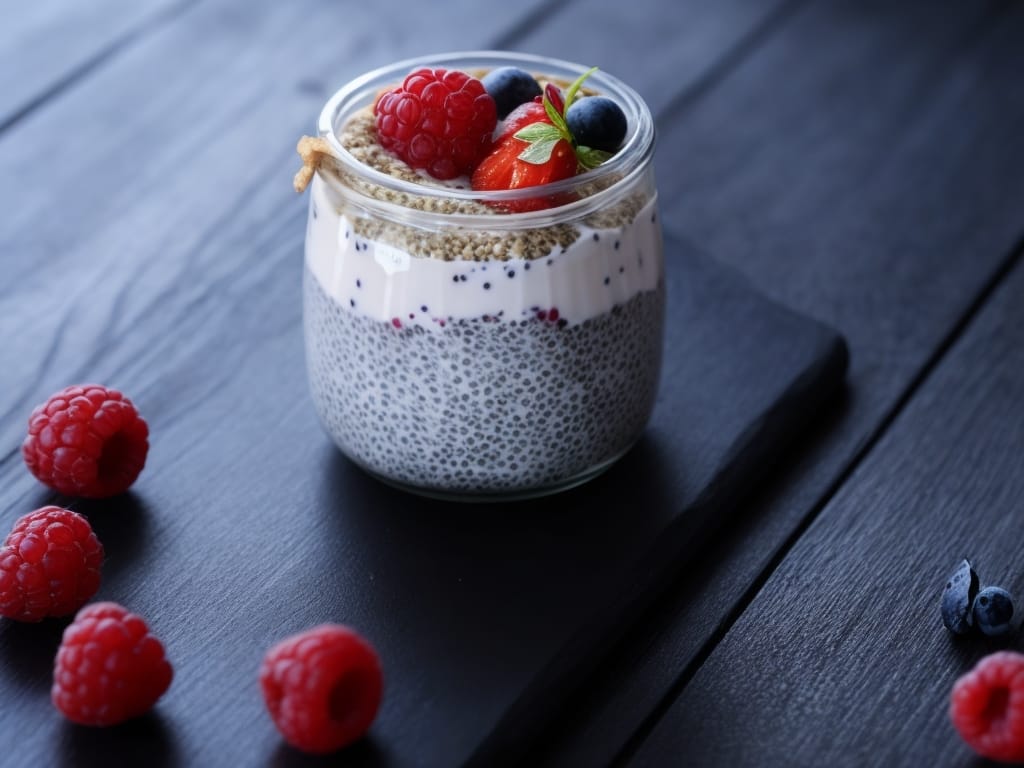I. Introduction to the Vegan Wellness Guide
A plant-based diet has gained significant popularity in recent years, with many people adopting veganism for ethical, environmental, and health reasons. However, transitioning to a vegan lifestyle requires careful planning to ensure that you meet all your nutritional needs. It is important to understand how to obtain essential nutrients such as protein, iron, calcium, and vitamin B12 from plant-based sources. This vegan wellness guide provides tips and recommendations for a nutrient-rich plant-based diet, helping you maintain optimal health while following a vegan lifestyle.

II. The Importance of a Nutrient-Rich Plant-Based Diet
A nutrient-rich plant-based diet is essential to ensuring optimal health while following a vegan lifestyle. By adopting a vegan diet, you eliminate animal products that are often high in saturated fat, cholesterol, and additives. Instead, you focus on consuming whole, unprocessed plant foods that are rich in vitamins, minerals, fiber, and antioxidants.
Embracing a varied and diverse menu of fruits, vegetables, whole grains, legumes, nuts, and seeds will not only provide you with the necessary nutrients but also offer immense health benefits. Plant-based diets have been linked to lowered risk of heart disease, obesity, type 2 diabetes, and certain types of cancers.

The key to achieving a nutrient-rich plant-based diet is to ensure you are obtaining all the necessary macronutrients (protein, carbohydrates, and fats) and micronutrients (vitamins and minerals) from a wide range of plant sources. In the following sections, we will delve into specific plant-based sources for various nutrients to help you create a well-balanced vegan meal plan. Stay tuned for more tips on how to thrive on a vegan diet!
III. Key Nutrients for Vegans and How to Obtain Them
While following a vegan lifestyle, it is crucial to pay attention to key nutrients that may be lacking in a plant-based diet. By ensuring you are obtaining these nutrients from various plant sources, you can thrive on a vegan diet and maintain optimal health.
Protein: Contrary to popular belief, it is possible to meet your protein needs on a vegan diet. Incorporate foods such as legumes (beans, lentils, chickpeas), tofu, tempeh, seitan, quinoa, and edamame. These provide essential amino acids and help build and repair tissues in your body.

Calcium: Dairy isn’t the only source of calcium. Opt for almond or fortified soy milk, tofu, leafy greens (kale, collard greens, bok choy), sesame seeds, and fortified plant-based yogurts.
Iron: Plant-based sources of iron include leafy greens, tofu, lentils, quinoa, chia seeds, pumpkin seeds, and fortified cereals. To enhance iron absorption, consume these foods with a vitamin C-rich source like citrus fruits or bell peppers.
Omega-3 fatty acids: Include ground flaxseeds, chia seeds, walnuts, hemp seeds, and algae-based supplements in your diet to meet your omega-3 needs.

Vitamin B12: As vitamin B12 is primarily found in animal products, it is recommended to take a B12 supplement or consume fortified plant-based milk, cereals, and nutritional yeast.
By focusing on these key nutrients and including a variety of plant-based sources in your meals, you can ensure a nutrient-rich vegan diet.
IV. Tips for Meal Planning and Preparation
Meal planning and preparation are essential for maintaining a nutrient-rich vegan diet. By being organized and intentional with your meals, you can ensure that you are getting all the necessary nutrients and avoid any nutrient deficiencies. Here are some tips to help you with your meal planning and preparation:

1. Plan your meals
Take some time each week to plan out your meals. Consider your nutrient needs and choose a variety of foods that provide those nutrients. Include a mix of whole grains, legumes, vegetables, fruits, and plant-based protein sources in your meals.
2. Batch cook and meal prep
Set aside some time each week to batch cook and meal prep. Cook large batches of grains, legumes, and vegetables that can be used throughout the week. This will save you time and make it easier to put together nutritious meals.
3. Use a variety of cooking methods
Experiment with different cooking methods to keep your meals interesting and flavorful. Try steaming, roasting, sautéing, grilling, or even raw preparations for different vegetables and plant-based proteins.
4. Stock up on pantry staples
Keep your pantry stocked with essential vegan ingredients such as whole grains, legumes, nuts, seeds, herbs, and spices. Having these ingredients on hand will make it easier to whip up nutritious meals whenever you need them.
By following these meal planning and preparation tips, you can stay on track with your vegan diet and ensure that you are getting all the nutrients your body needs. In the next blog section, we will share some easy and delicious vegan recipes that you can incorporate into your meal plan. Stay tuned for some plant-based culinary inspiration!
V. Nutrient-Rich Vegan Recipes
Now that you have some handy tips for meal planning and preparation, let’s dive into some nutrient-rich vegan recipes that will satisfy your taste buds and keep your body nourished. These recipes are not only delicious but also packed with essential vitamins, minerals, and antioxidants that are often found in plant-based foods.
1. Quinoa and Vegetable Stir-Fry
This quick and easy stir-fry is loaded with colorful veggies like bell peppers, broccoli, and carrots, providing a variety of nutrients. Add cooked quinoa for a complete protein source and top it off with a flavorful sauce made from tamari, garlic, and ginger.

2. Chickpea Salad Wraps
Perfect for a light lunch or snack, these wraps are filled with protein-rich chickpeas, crunchy vegetables, and a zesty tahini dressing. This recipe is a versatile way to incorporate legumes into your diet and enjoy a satisfying meal.

3. Lentil Shepherd's Pie
Warm and comforting, this plant-based twist on a classic dish is made with lentils, mixed vegetables, and topped with creamy mashed cauliflower. It provides a good balance of protein, fiber, and vitamins, making it a wholesome option for dinner.
4. Berry Chia Pudding
For a nutrient-packed dessert or breakfast option, try this creamy chia pudding made with plant-based milk, chia seeds, and a medley of fresh berries. Chia seeds are a great source of omega-3 fatty acids and fiber, while berries offer antioxidants and vitamins.

These recipes are just a starting point, and there are countless delicious and nutrient-rich vegan dishes waiting to be explored. Don’t be afraid to get creative in the kitchen and experiment with different flavors and ingredients. Happy cooking!
VI. Additional Lifestyle Factors for Optimal Vegan Wellness
While a nutrient-rich plant-based diet forms the foundation of a healthy vegan lifestyle, there are also some additional factors to consider for optimal vegan wellness. These factors, when combined with a balanced diet, can help you thrive on your vegan journey and achieve overall well-being.
1. Regular Exercise
Incorporating regular exercise into your routine is essential for maintaining a healthy body weight, improving cardiovascular health, and enhancing muscle strength. Choose activities that you enjoy, whether it’s yoga, running, cycling, or dancing, to make it easier to stick to a consistent exercise regimen.

2. Hydration
Staying hydrated is crucial for overall health, and it’s especially important on a vegan diet. Aim to drink plenty of water throughout the day to support digestion, nutrient absorption, and detoxification. Herbal teas, infused water, and fresh fruit juices can also be refreshing alternatives.

3. Adequate Sleep
Getting enough sleep is essential for allowing your body to repair and rejuvenate itself. Aim for 7-9 hours of quality sleep each night to maintain energy levels, support mental clarity, and improve overall well-being.

4. Stress Management
Stress can have a negative impact on your health, so it’s important to find effective ways to manage it. Practices like meditation, deep breathing exercises, yoga, and spending time in nature can help reduce stress levels and promote a sense of calm.

By incorporating these lifestyle factors into your vegan journey, you can enhance the benefits of a plant-based diet and experience optimal wellness. Remember, balance is key, so find what works best for you and make self-care a priority.
Conclusion: Embracing a Nutrient-Rich Plant-Based Lifestyle
In conclusion, embracing a nutrient-rich plant-based lifestyle is a wonderful choice for your overall wellness. By following a balanced vegan diet and incorporating additional factors such as regular exercise, hydration, adequate sleep, and stress management, you can optimize the benefits of your plant-based journey. Remember, everyone’s needs are different, so it’s important to find what works best for you and make self-care a priority. Embrace the abundance of nutrient-rich plant-based foods available to you and enjoy the benefits of improved health, increased energy, and enhanced well-being. Your commitment to a plant-based lifestyle will not only benefit your own health but also contribute to a more sustainable and compassionate world.



